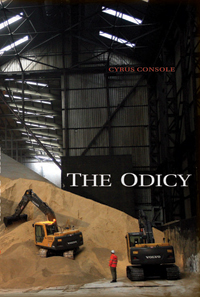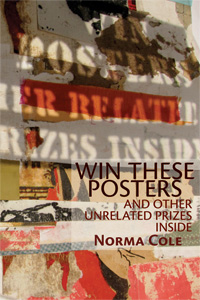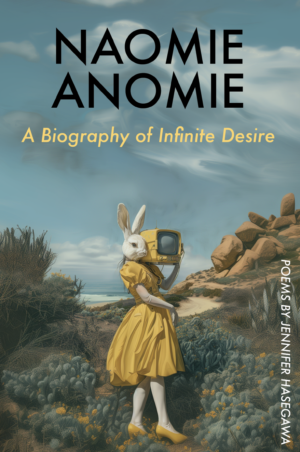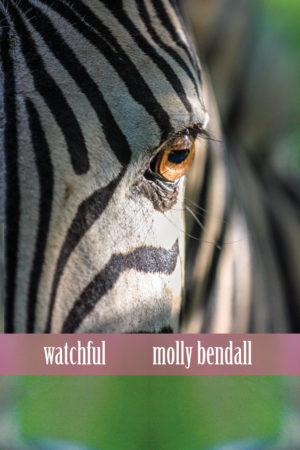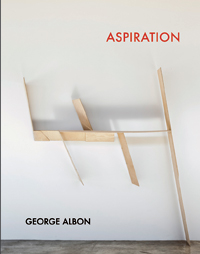Description
The Odicy, Cyrus Console’s second book, uses pentameter in an attempt to take the measure of our epoch’s cultural and ecological crises. Tracking a mysterious central character named Tony, the book combines the end-time rhetoric of contemporary fundamentalism with meditations on artificial color and the rise of fountain drinks, revisiting Dante’s animus for the counterfeiter upon the purveyors of NutraSweet. It attempts to come to terms with social continua on which sugar substitutes are manufactured by pharmaceutical giants, or where weaponized defoliants like Agent Orange evolve into bestselling agrichemicals like Roundup. Console’s English is straight out of 21st century Topeka, while his deployment of canonical meter posits the sustainability of verseform over a longer human term.
About the Author
Reviews
Excerpt
Cyrus Console is from Topeka, Kansas. He is the author of The Odicy (Omnidawn, 2011) and Brief Under Water (Burning Deck, 2008). He teaches at the Kansas City Art Institute.
An Interview with Cyrus Console
(conducted by Rusty Morrison)
You have described the title of THE ODICY as a pun on Odyssey (Homer) and Théodicée (Leibniz). Would you say more about this choice? your relationship with these two texts? and/or, your choice to use a pun as a title?
I have never managed to feel entirely comfortable with this title—it’s a stupid pun—but it sticks because of something the wordplay doeswith regard the religious experience or idea of religious experience, realized or unrealized, that drives much of the writing. It really affected me when, early in the project, I noticed that you could break the theo- prefix, common in English and derived from Greek ???-?, “god,” in order to yield the definite article, “the.” It seemed to me that the definite article was the point of contact between form and content, or between language and the world—it seemed literally to articulate “the chair” I was sitting in from “chair” as a position in a vocabulary or as a category in the mind. Part of what I wanted the book to do was narrate a variety of religious experience that was more or less atheistic, and I liked the way the introduction of a single en space turned “theodicy” (OED: The, or a, vindication of the divine attributes, esp. justice and holiness, in respect to the existence of evil; a writing, doctrine, or theory intended to ‘justify the ways of God to men’. Cf. optimismn. 1.) became “the odicy,” which refers both to the epic and to a more general idea of wandering.
The book is comprised of five sections, and each section begins with a quote (from Arthur Schopenhauer, Jack London, Leda Cosmides and John Tooby, E.T. Jaynes, William Cowper, respectively). Would you speak to this choice: to create, to complicate, a relationship between a quoted source and your poetic text?
The short answer is that I see them as collage elements or sampling. The quotes are attributed only in the book’s endpaper, which suggests I chose the passages (all prose) with the idea that they would form part of the poem rather than serve as glosses or citations. They have, for me at least, intense thematic value. The Schopenhauer quote concisely illustrates one sense of the evil of the world I’m writing in. The London is about sugar, greed, and aggression—I’ll try to say more about how sugar functions in the book below. The Tooby and Cosmides introduces and combines the ideas of test patterns, rainbows, and running water. Repetitive metrical and stanzaic forms function as test patterns in the book—the center section is a series of acrostics on the word “rainbow,” and the reader should be able to use the acrostic as a basic index of whether a given poem is well-formed, just as she can use the compare the expected rhythm of the pentameter with the observed rhythm of individual lines to test whether or not they are, in this simple sense, well-formed. Color terms are a key part of the book’s vocabulary, as is “water,” and the “rainbow sign” is important to me as harbinger of “the fire next time.” As for the Jaynes quote, I like the way real grass becomes noise in a signal—television static—and “unused channel” seems like a good metaphor for the religious aspect of the poems. I wanted to write sacred literature for a world where nothing was sacred. Then the Cowper quote ends the book with a reference to the epic and also to language’s apparently progressive alienation from the empirical world.
Your first book, BRIEF UNDER WATER, is very different in form. How soon after your first book did you begin working on THE ODICY? How did this formal shift occur for you?
I have no clear memory of finishing the one or of beginning the other, although at some point I must have made a decision to give up the compositional frame of the sentence in favor of that of the line. I remember while I was writing Brief Under Water being obsessively worried about what I understood to be personal deficiencies of talent and intellect, whereas writing The Odicy I worried obsessively about the status of poetry/verse as an art form, whether or not it was still real or practicable, and so forth. I could say that this shift signalled a growing interest in writing as a social practice. The first book was an experiment in autobiography, whereas the second was trying to figure out, to begin to figure out, how lyric and epic fit into an industrialized language.
How did you come to the idea of your central character, Tony? Did your initial intentions for this character change, as the text evolved for you?
Certainly my intentions for the central character changed. I began with the goal of writing a coherent narrative poem, a poem that told the story of Tony—it was going to deal with sugar and sugar substitutes, pollution, extinction, and Tony’s “personal odyssey” through a collapsing world. The poems added up without ever unifying that narrative. More and more, they felt like songs written to exemplify or preserve certain flavors of English, flavor combos. Toward the end, I conceived of “Tony” and “Anthony” as emblems of the trochaic and dactylic substitution that increasingly marked or marred the verse.
You selected the cover image for this book’s cover design. What made you choose it?
The image is a mountain of sugar in a giant warehouse. In the foreground, there are tiny figures and machines crawling on it. Sugar and sugar substitutes are key contents in the book. Sweetness seems like a fundamental lyric trope to me, one that evolved when sugar and calories were scarcer and more precious than they are today, or so I imagine. The main sense in which The Odicy is “experimental”—the central question the book poses and attempts to resolve—is how does a contemporary poet, lyric poet, take up a vocabulary of sweetness in a world where sugar is a health threat, and where sugar substitutes are part of a fabulously wealthy chemical industry that also produces drugs and weapons. And what does it mean for the relationship between words and things that we have things like artificial colors and flavors? The world increasingly consists of manufactured things, which differ from “natural” things primarily in that natural things—wind, water, stones, animals—precede their names into the world, whereas manufactured things begin as language (instructions, blueprints, commands) and are preceded into the world by their names.
Anyway, I knew I wanted sugar on the cover. As I conducted my google image searches, the photograph in question stood out to me because it referred to the mountain of the opening poem. I liked the way the expected scale of person and sweetener were reversed (a pint-sized human crawling the western face of the sugar pile) and the indoor (culture) and outdoor (nature) were reversed–an indoor mountain.
In THE ODICY, you take on some of the most immediate, most dangerous crises we face, and you do it using one of the oldest forms of poetic production. Can you discuss the intersection of subject matter and form in this text?
Most of the book was written with the feeling that the world would end in my lifetime, or with my lifetime (my image of world’s end is fuzzy enough that I don’t know whether we end with it.) I was also feeling a lot of anxiety about whether and how poets fit into the contemporary global community, or how poetry fit into the the contemporary economy. One of the most reliable ways for me to keep my spirits up during this time was through the fantasy that the bronze-age artform, written poetry, actually had special potential to document and or respond to the industrial catastrophe, not least because an epic about modernity could be transmitted postapocalyptically, unlike a youtube or a ringtone.
I thought if I could write a little epic, or a series of lyrics, or some combination of the two, that could enter a human memory and stay there (as opposed to a forgettable or nonmemorizable poem), that that would produce self-correcting or self-justifying feature in the work, a way for me to know that it was real poetry or real art. It would also be a way for me to work in despite of my conviction the end was nigh, since I, a poet, if that’s what I was, would still have “work” after the grid went dark and the trees died.
Can you describe your methods as a writer? your relationship to the act of revision, your use of source material, the largest challenges you faced as you worked through the writing of this text? What was the most frightening, or risky aspect of writing this text for you? What was the most sustaining, enlivening aspect of writing this text for you?
Writing the pentameter (in other words, constraining the poetic line to five stresses and thus processing all language in the book in terms of distribution of speech stress—in addition to whatever else it might do, the poem was always a predetermined pattern of syllables) was the most sustaining and enlivening aspect of this project for me, as well as one of the riskiest, scariest, and most challenging. I guess the challenge and risk of a given project is often what people experience as drawing them into it or on with it.
This strict, simple formal constraint, together with the stanzaic constraint (three sestets per page), was liberating because it meant that I could confront problems of invention (how do I begin? what do I say next? how much more must I say before the poem is finished?) in terms of shape or rhythm. I could envision every page in the sequence as a small, clearly delimited plot which my only job was to populate with syllables to the best advantage. On the other hand, there was the constant threat of somehow filling out this form in the same manner, rounding it off with the same type of ending or non-ending, breaking lines in the same way over / and over again, at the same syntactic junctures, and so forth. And these threats led in turn to interesting formal questions like, why do I feel that two poems, which do not share any nouns or verbs, nonetheless begin or end “in the same way.” There was also the challenge of using meter in a way that was not simply mannered or nostalgic.
To talk more generally about my methods as a writer: the big challenge for me is to stop worrying and generate the text, to have faith that somehting worthwhile will turn up in the flow, once I initiate that flow, of language. That’s how both revision and reading fit into my practice. For me the work of revision is to look critically at the language you’ve produced and sift out or hew out the good fragments. Reading books attunes you to the sensation of encountering interesting or pleasing text and equips you to isolate it, should you be so lucky as to produce some.
When you read other poets, what are you looking for? What stimulates your interest? and what sustains your interest? Who are the writers you are reading currently for kinship? Who are the writers you are reading currently to be challenged?
I don’t think about most of my reading, such as it is, in terms of kinship or challenge, although Kafka and Melville are really important to me as examples of people whose writing makes me feel like we shared some of the same anxieties, and they managed to keep writing through them. I have been reading Ben Lerner’s writing for, I think, as long as he has been writing it, and he continues to be a paragon for me.
In general I’m looking for writers who have a comprehensive, precise sense of what words mean and who are attentive to form. I generally read more prose than verse. I’ve just read Barry Lyndon and the novels of Dashiell Hammett.
Are there artists or musicians whom you especially return to? and why?
Names that come immediately to mind are Brahms, Bach, Beethoven, but I have felt distant from music for years now, something that distresses me. I guess right now I’m wearing headphones and the playlist is Led Zeppelin, early Black Sabbath, and The Groundhogs, but that (the headphones and the playlist) feels like something I’ve done on a whim, maybe an effort to reconnect with my preteen interest in metal. I love prints and drawings, I want to say I love Tiepolo (Domenico), Goya, Durer, but immediately catch myself and think, can I actually name a drawing by these, or distinguish between drawing, etching and print. I guess Durer’s “Deluge” and his “Four Horsemen,” his painting “Turf,” Goya’s Obras Negras particularly “Saturn Devouring his Children,” Tiepolo’s Punchinello drawings.
However I try to respond to the question of artists and musicians, it’s uncomfortable, I’m overwhelmed by this feeling that in order to name an oeuvre I must have a position on it, but the fact is all I have are vague and sentimental tastes and that my experience of art and music has been formed through chance encounters and wholly in the absence of study or disciplined attention. And not having cultivated interest in music or art, now I spend months at a time fearing that I’ve lost my interest in them—more to the point, lost my ability to respond to them—altogether. This is a source of anxiety for me.
Though they seem disparate on first encounter, the five sets of 18-line poems end up sticking together, in part through the ill-starred adventures of Anthony (a bit like John Berryman’s Henry), and in part through schemes of echo, argument, and repetition that emerge the second and third time through. Console’s work leaves more questions than it answers, and it may baffle those unused to collage; it also, however, gives pleasure in its challenge, one to which readers should rise.
If you want new poets who speak to [the literary and cultural and social history in which their poems, like all poems, exist], who critique and confront it, then you will want Cyrus Console’s majestic, aggressive, disturbing second book, The Odicy, from the up-and-coming Richmond press Omnidawn. It is (as the pun in the title suggests) a broken-up, inside-out, postmodern epic journey, a fractured, frustrated attempt to discover justice, or purpose, or divinity, in our day.
These poems take the measure of the bad things happening in and to our world—environmental crisis, animal suffering, individual and corporate corruption. But they do so through an enduring device, the pentameter line, which provides a standard from which Console veers freely, showing that the poetry’s traditional formal conventions can “make new” our newly threatened world.
In its careful metaphors (the “illness / Of the garden” and the Mountain’s “bright garment”), these chiasmatic descriptions sound almost as if plucked from another era. The master of this trope was Dickinson, of course, whose natural metaphors (think of “A Bird came down the Walk—”) somehow transform the basest characteristics of what we recognize in order to foreground their otherness and see them oddly anew. What Console’s lines accomplish is to perform two things simultaneously: to lay the blame of environmental devastation at the door of the human—without, however, any banal screed. Instead, he does this by characterizing that “dissolution” of the gardens and mountains by humanizing the very nonhuman things that human beings have destroyed.
Console’s book pushes us as readers again and again to confront questions of our humanity and what it means for us to exist within the world. No easy answers are offered because no easy answers are available. What one does feel required to do is consider one’s own place in the world, how one’s work adds to or subtracts from the world, and what it means to conduct ourselves in an ethical, sustainable manner.
As the homophonic pun of the title suggests (it is both a “theodicy” and is an “Odyssey” of sorts) Console’s aims are ambitious and take place within an epic scale in a universe where epic scales can barely exist. In other words, Console can only succeed in his aims if his work is a transcript of their failure, of their own necessary unravelling. Yet, in this unravelling, in this sad multiplication of shelled meaning, something strange, direct, and beautiful does emerge, like the rediscovery of a ruin long thought lost. If he, as a poet, is a victim of structural forces that impede his ability to connote, then the only way his language can survive is if it bears the imprint of its own shortcomings. Far from this being a bad thing, in fact, it frees his language from the burden of representing, the burden of connotation, of embodying anything other than itself.
Console is exploring and developing an approach in this book that many other poets would be too timid or conventionally unconventional to try. It’s important to keep in mind that when ideas about the experimental become too narrow or expected, those ideas stop being experimental at all.
I put on my shoes, my belt, and walked
Boldly up the ramp whereon the man
Stood with the sledge. My brothers, breathing
Softly, balked. Since you would not gladly
For your principles, your principles
Died for you. You would have just died
Anthony you would have liked to ask
How they knew that it was going to rain.
Your sainted Anthony would have replied
Same way you do, Governor. How in God’s
Good name can you subject them to such treatment
Then. You probably feel the same way I do
Anthony. Strike them with your bright axe
And be done with it. Swine cry aloud
For seven travel mugs of unlit matter
For their mother, for her sadness, could
She see them now, brought low. They never could
Talk no high class

